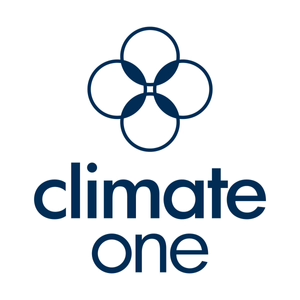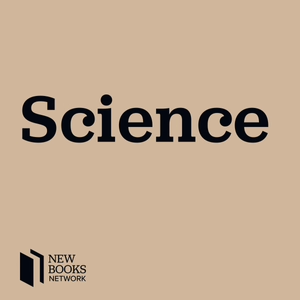
Burping Cows! Measuring Methane Emissions from Cattle
07/03/24 • 23 min
According to 2022 statistics published by the US EPA, enteric fermentation (a digestive pathway that produces gasses in the gut) by cattle accounted for around 3% of total US greenhouse gas emissions when converted to carbon dioxide equivalents. We spoke with Dr. Glenn Duff, from New Mexico State University to learn more about the research he and his team are conducting to measure gas fluxes and emissions from cattle in pursuit of improving efficiency and lowering emissions from this sector.
Relevant Links:
Greenhouse Gas Inventory Data Explorer from the US EPA
Clayton Livestock Research Center, New Mexico State University
Sustainable Southwest Beef Project
If you’re enjoying this podcast, please consider rating us and/or leaving us a review on Apple Podcasts, Podcast Addict, or Podchaser Thanks!
Follow us on X @RainShinePod
Never miss an episode! Sign up to get an email alert whenever a new episode publishes!Have a suggestion for a future episode? Please tell us!
Come Rain or Shine affiliate links:
DOI Southwest CASC: https://www.swcasc.arizona.edu/
USDA Southwest Climate Hub: https://www.climatehubs.usda.gov/hubs/southwest
Sustainable Southwest Beef Project (NIFA Grant #2019-69012-29853): https://southwestbeef.org/
According to 2022 statistics published by the US EPA, enteric fermentation (a digestive pathway that produces gasses in the gut) by cattle accounted for around 3% of total US greenhouse gas emissions when converted to carbon dioxide equivalents. We spoke with Dr. Glenn Duff, from New Mexico State University to learn more about the research he and his team are conducting to measure gas fluxes and emissions from cattle in pursuit of improving efficiency and lowering emissions from this sector.
Relevant Links:
Greenhouse Gas Inventory Data Explorer from the US EPA
Clayton Livestock Research Center, New Mexico State University
Sustainable Southwest Beef Project
If you’re enjoying this podcast, please consider rating us and/or leaving us a review on Apple Podcasts, Podcast Addict, or Podchaser Thanks!
Follow us on X @RainShinePod
Never miss an episode! Sign up to get an email alert whenever a new episode publishes!Have a suggestion for a future episode? Please tell us!
Come Rain or Shine affiliate links:
DOI Southwest CASC: https://www.swcasc.arizona.edu/
USDA Southwest Climate Hub: https://www.climatehubs.usda.gov/hubs/southwest
Sustainable Southwest Beef Project (NIFA Grant #2019-69012-29853): https://southwestbeef.org/
Previous Episode

Advancing Climate Services Across The Federal Family
Dr. Julian Reyes joins us to talk about climate services at the White House Office of Science and Technology Policy. Julian shares how his work involves uplifting climate services across the entire federal family and finding synergies across federal agencies to maximize benefits to society. Note: at the time of this recording, Dr. Julian Reyes held the position of Assistant Director for Climate Services at the White House Office of Science and Technology Policy; he has since moved on to a new position with a different employer.
Relevant Links:
Climate Mapping for Resilience and Adaptation portal
If you’re enjoying this podcast, please consider rating us and/or leaving us a review on Apple Podcasts, Podcast Addict, or Podchaser Thanks!
Follow us on X @RainShinePod
Never miss an episode! Sign up to get an email alert whenever a new episode publishes!Have a suggestion for a future episode? Please tell us!
Come Rain or Shine affiliate links:
DOI Southwest CASC: https://www.swcasc.arizona.edu/
USDA Southwest Climate Hub: https://www.climatehubs.usda.gov/hubs/southwest
Sustainable Southwest Beef Project (NIFA Grant #2019-69012-29853): https://southwestbeef.org/
Next Episode

Exploring Nature-Based Solutions
Nature-based solutions - what are they exactly? Is there a standard definition? And even though the term is new to us, are the practices themselves actually something new? In this episode we speak with Dr. Laura Norman, a Research Physical Scientist with the U.S. Geological Survey, to answer these questions and more.
Relevant links:
IUCN Global Standard for Nature-based SolutionsOpportunities to Accelerate Nature-Based Solutions (2022)
Nature-Based Solutions Resource Guide 2.0 (2023)
The Science That Transformed A Dry Streambed Into An Oasis
If you’re enjoying this podcast, please consider rating us and/or leaving us a review on Apple Podcasts, Podcast Addict, or Podchaser Thanks!
Follow us on X @RainShinePod
Never miss an episode! Sign up to get an email alert whenever a new episode publishes!
Have a suggestion for a future episode? Please tell us!
Come Rain or Shine affiliate links:
DOI Southwest CASC: https://www.swcasc.arizona.edu/
USDA Southwest Climate Hub: https://www.climatehubs.usda.gov/hubs/southwest
Sustainable Southwest Beef Project (NIFA Grant #2019-69012-29853): https://southwestbeef.org/
Come Rain or Shine - Burping Cows! Measuring Methane Emissions from Cattle
Transcript
Emile: Welcome to Come Rain or Shine, podcast of the USDA Southwest Climate Hub
Sarah: and the DOI Southwest Climate Adaptation Science Center, or Southwest CASC, operated by the USGS. I'm Sarah LeRoy, Research Coordinator for the Southwest CASC.
Emile: And I'm Emile Elias, Director of the Southwest Climate Hub. Here we highlight stories to share the most recent advances in climate science, weather, and climate adaptation and innovative p
If you like this episode you’ll love
Episode Comments
Generate a badge
Get a badge for your website that links back to this episode
<a href="https://goodpods.com/podcasts/come-rain-or-shine-175941/burping-cows-measuring-methane-emissions-from-cattle-59194107"> <img src="https://storage.googleapis.com/goodpods-images-bucket/badges/generic-badge-1.svg" alt="listen to burping cows! measuring methane emissions from cattle on goodpods" style="width: 225px" /> </a>
Copy




